29. 5. 2024
Voda před:
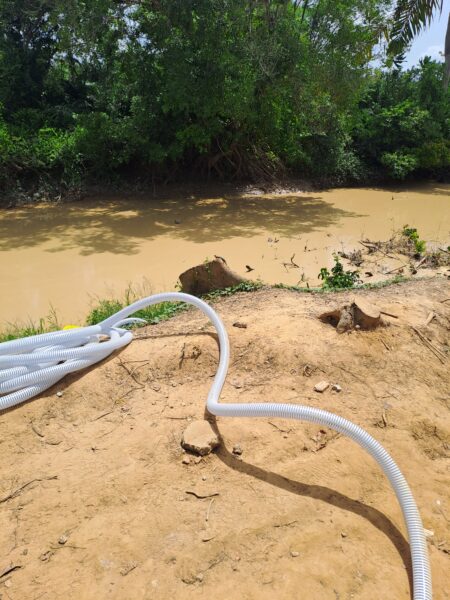
Voda po:
A few years ago, in cooperation with S.E.D.A. CONSULTING S.R.O., we launched a project that combines business activities with providing assistance to those in need in developing countries. After thorough testing and feasibility study, this year in February, we shipped a containerized water treatment plant to the Ghanaian town of Kade. Two months later, in mid-May, our colleagues along with the company owner, Ivo Hutira, personally traveled to Kade to put the treatment plant into operation. Our innovative technology will be used to improve access to drinking water in the region. How did everything go? This was vividly described to us by Petr Hajný, the Water Division Director and the liaison officer of the Ghana expedition.
In mid-May, we embarked on a challenging “mission” to Ghana, aiming to commission the containerized water treatment plant which had arrived a few days before us. Our destination was the town of Kade, in the Kwaebibirem Municipal district in the Eastern region of Ghana, situated along the Birim River.
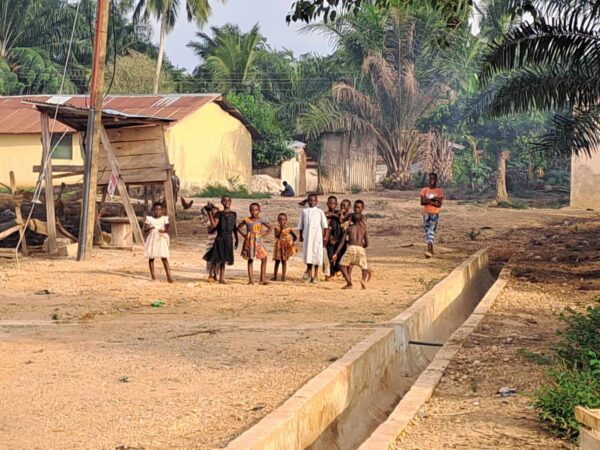
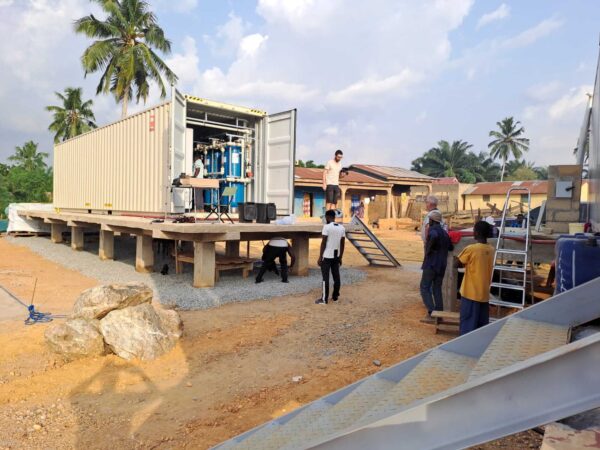
Despite all the preparation, we encountered many obstacles in Kade. Sourcing basic materials like screws, bolts, or pipe parts was very difficult. Unfortunately, part of our tools, which we shipped along with the technology, got lost on the way, and it was only here in Africa that we realized how much we missed simple things like an extension cord, a marker, or a measuring tape. A vacuum cleaner is practically unknown here.
First, we had to connect all pipe systems to the container and the intake structure – some of us became makeshift plumbers. Placing the suction pump on a buoy in the river from the local rickety rowboat is quite an experience – supposedly, there are no crocodiles or other critters here, but we are 100% cautious…
Simultaneously, our electrical technicians connected all the necessary wiring and brought the technology’s control system to life. Only after all these tasks could we start filling water into the treatment plant and begin the setup and optimization process. Many problems arose here as well, which we had to occasionally resolve with a lot of improvisation. Frequent power outages significantly slowed down the work.
Working in extreme heat was exhausting. We worked nearly 12 hours a day, including weekends, and added evening shifts for several days. After about 12 days, we managed to adjust the technology to produce the desired water quality, which we started pumping into the flexible bladder. This was followed by training for the operators, who had been with us from the beginning and tried to help us as much as possible.
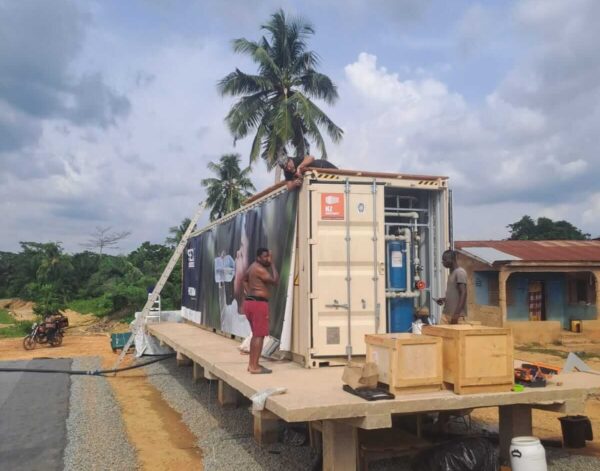
From the local community, including the local chief who is the most important person in the whole town, we received warm welcomes multiple times – either at his house or when he honored us with his visit at the project site. We witnessed local cultural rituals that took place because of our presence. We felt how important a task we were performing for the local people, and at every step, we could sense their tension about whether we would really be able to treat the highly polluted water from the river, which is sacred to them.
As part of our mission, we also had to play a friendly football match. Initially, we thought it would be against children who played football all day near the location of our treatment plant. Imagine our surprise when the local representative team lined up against us, taking this match very seriously. After ten hours of exhausting work in the scorching heat, we had to gather the last remnants of our energy and play against truly physically and technically adept local adult footballers, on a terrain that we might only envision, having experienced old gravel surfaces. Even those cannot compare to this. It made one realize even more in what conditions the young athletes grow up here. We eventually managed the match with honor and the help of several local players, and deservedly left for the hotel to have some local Ghanaian beer and food prepared by our Ghanaian cook Rose, who cooked exceptionally well.
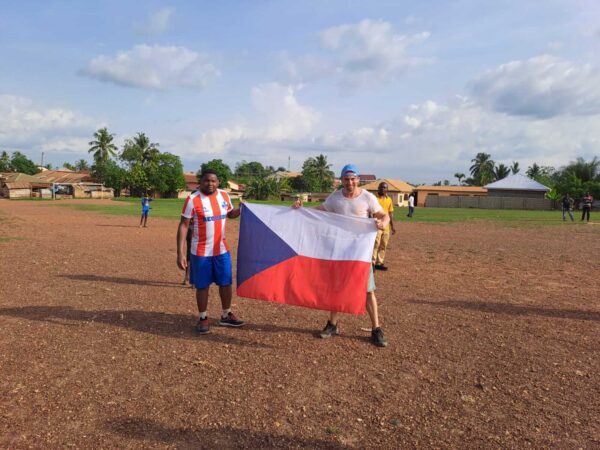
Water flowing, mission accomplished. The moment when the beautiful clean water started flowing from the pipes is one I will remember for the rest of my life. It was a huge relief and joy all at once. When the local boys, who had been playing football all day in that terrible heat nearby, came running and started splashing each other with the crystal-clear, cold water immediately, it was pure childlike joy at something they may have never experienced in this form before. Perhaps all the hard work was worth it just for that moment. Now, we still have a lot of work ahead with the local team, which we remotely manage, striving to continue optimizing the technology and teaching them how to operate and care for it. We were able to commission the containerized water treatment plant and thus provide access to drinking water for 20,000 residents of Kade. It was a challenging journey full of obstacles, but also valuable experiences and insights into a different culture.
Voda před:

Voda po: